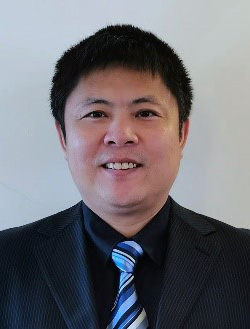
Dr Hongwei Wu
School of Physics, Engineering and Computer Science
University of Hertfordshire, United Kingdom
h.wu6@herts.ac.uk
Dr Hongwei Wu is an Associate Professor in the School of Physics, Engineering and Computer Science, and Leader of the Research Group in Monitoring Climate and its Impact (MCI) – C3R at University of Hertfordshire (UH). Hongwei is a Chartered Engineer (CEng), a Fellow of the Institution of Mechanical Engineers (FIMechE), a Fellow of the Energy Institute (FEI), and a Fellow of The Higher Education Academy (FHEA). He received his PhD degree (Joint PhD Programme with the Hong Kong University of Science and Technology) in Thermofluids from Beihang University in 2004. Hongwei's research mainly focuses on Advanced Cooling Technology, Energy Conversion and Storage Technologies, Renewable Energy and Energy System, Battery Thermal Management System (BTMS), Two Phase and Multiphase Flow, Fluid-Solid Conjugate Heat Transfer, Modelling/Simulation methods (CFD)-DNS, LES, MDS, Optimisation and Process Control, AI-Machine Learning (ML)-Deep Neural Networks (DNNs). He has published more than 150 papers with over 100 peer-reviewed journal publications including top journals such as Applied Energy, Applied Thermal Engineering, International Journal of Heat and Mass Transfer, Journal of Power Sources, etc. He has been a regular reviewer of many leading journals and serves as Editor/Editorial Board Members of many International Journals. He also serves as general Chair/co-Chair and session Chairs/co-Chairs, OCM and TPC members at many International Conferences.
Title: Energy-saving opportunities through advanced control of continuous frying systems
Abstract: In an era of steadily increasing energy prices and concerns over the environmental impacts of energy use, energy efficiency can offer one of the best approaches to reduce greenhouse of the best approaches to reduce greenhouse gas emissions and improve profitability. In the production of potato crisps, frying consumes more than 90% of the total processing energy requirement so the greatest potential for energy savings is offered by design and control optimization to reduce thermal losses. Optimisation of the frying process requires good knowledge and understanding of the heat and mass transfer processes involved and their influence on product quality, safety, product throughput and energy consumption.